Facebook
Twitter
LinkedIn
Pinterest
Reddit
Email
Print
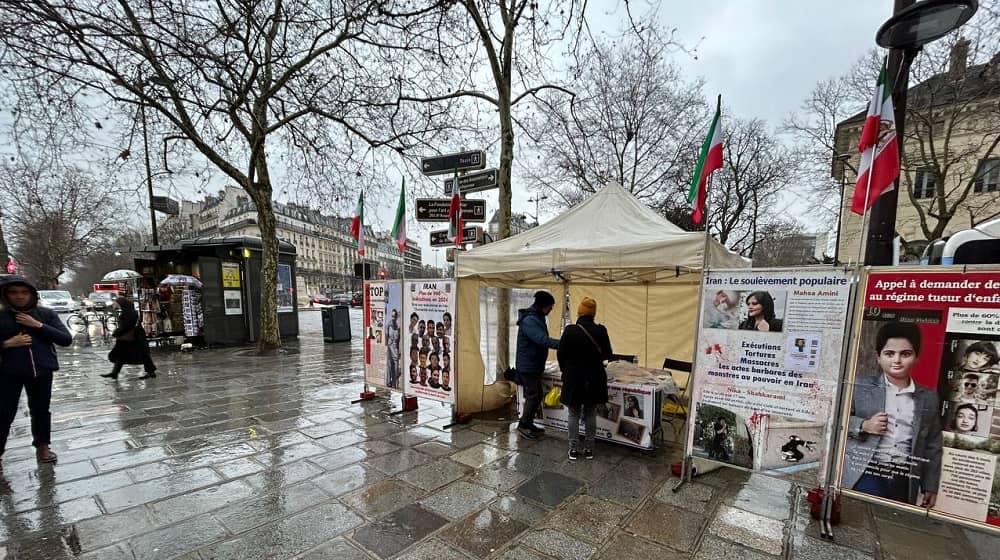 Supporters of the Iranian Resistance held a bookstand in Paris, France, on January 8, 2025
Supporters of the Iranian Resistance held a bookstand in Paris, France, on January 8, 2025
THIS PAGE WILL BE UPDATED WITH THE LATEST NEWS
UPDATE: 8:30 AM CET
Japanese Yakuza Leader Pleads Guilty to Nuclear Materials Trafficking, Narcotics, and Weapons Charges

Takeshi Ebisawa, 60, of Japan, pleaded guilty in Manhattan, New York, today to conspiring with a network of associates to traffic nuclear materials, including uranium and weapons-grade plutonium, from Burma to other countries, as well as to international narcotics trafficking and weapons charges.
“Today’s plea should serve as a stark reminder to those who imperil our national security by trafficking weapons-grade plutonium and other dangerous materials on behalf of organized criminal syndicates that the Department of Justice will hold you accountable to the fullest extent of the law,” said Assistant Attorney General Matthew G. Olsen of the Justice Department’s National Security Division.
Ukraine Demands Accountability 5 Years After PS752 Flight Downing in Iran

Ukraine will not give up efforts to seek justice and hold the perpetrators accountable, the Foreign Ministry said in its Jan. 8 statement on the fifth anniversary of the downing of Ukrainian Boeing 737 flight PS752 near Tehran.
The Islamic Republic of Iran is responsible for the killing of 176 people on board the plane in Iranian airspace, including 11 Ukrainians, as well as citizens of Canada, Sweden, Britain, Afghanistan and Iran. The civilian aircraft was shot down by two surface-to-air missiles fired by the military of the Islamic Revolutionary Guard Corps.
Iran grossly violated a number of international laws by using weapons against civilian aircraft, failing to prevent the downing, and not conducting a transparent and objective investigation or proper prosecution of the accused.
UPDATE: 7:00 AM CET
Iran’s Regime Reaffirms Death Sentences for Political Prisoners
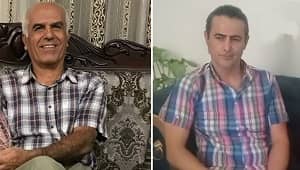
In a disturbing reaffirmation of its repressive policies, the Iranian judiciary has upheld death sentences against political prisoners Behrouz Ehsani and Mehdi Hassani, who have been charged with membership in the People’s Mojahedin Organization of Iran (PMOI/MEK). The decision, issued by the Tehran Revolutionary Court, signals yet another grim chapter in the regime’s escalating campaign of persecution against dissenters.
The sentences were originally handed down in September 2024, by Judge Iman Afshari of Branch 26, a figure notorious for his role in sentencing political prisoners. The charges against Ehsani, 69, and Hassani, 48, ranged from “rebellion (baghi)” and “waging war against God (moharebeh)” to “spreading corruption on Earth” and membership in the PMOI. They were also accused of possessing classified information and illegal weapons added to the case, which has drawn widespread international condemnation.
International Support for The “No To Executions” Campaign In Iran
In December 2024, more than 250 members of the UK’s House of Commons and House of Lords issued a statement joining the global campaign “No to Executions” in Iran. Among the signatories were over 10 chairs of parliamentary committees, four former leaders of the Conservative and Liberal Democrat parties, as well as the current leaders of the Democratic Unionist Party (DUP) of Ireland, the Welsh National Party, and the parliamentary group leader of the Scottish National Party (SNP). Additionally, more than 20 former ministers, including previous ministers of defense, armed forces, Scottish affairs, Wales, international trade, home affairs, justice, and culture, as well as several Bishops and prominent legal experts in the parliament, were among the signatories.
This commendable and exemplary action was taken while Iran’s regime remains at the top of the list of countries systematically using capital punishment to suppress protesters and political dissenters.
Iranians Are Using Starlink to Counter Internet Censorship

The use of Starlink, the satellite internet service provided by SpaceX, has surged dramatically in Iran. As of early 2025, over 100,000 Iranians are estimated to access the service, defying government-imposed internet restrictions. This growing reliance on Starlink underscores the resilience of the Iranian public against censorship and the government’s control over online communication. Starlink gained prominence in Iran following the death of Mahsa Amini in 2022 and the subsequent nationwide protests. The Iranian government’s response to these protests included widespread internet blackouts and heavy filtering of platforms such as Telegram, Instagram, and WhatsApp. Amid these restrictions, Starlink provided a vital alternative, enabling users to bypass censorship and access high-speed, unfiltered internet.
Challenges Facing Iran’s National Housing Project
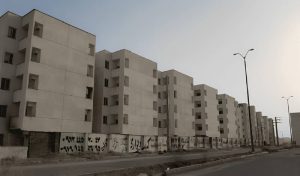
A recent report has shed light on the numerous challenges plaguing the “Iranian National Housing” initiative, including contractor disinterest, unaffordable costs for applicants, issues with bank financing, and difficulties in securing land. These challenges have hampered the project’s progress, raising questions about the feasibility of the government’s housing policies.
The Iranian National Housing Project traces its roots to the Mehr Housing Project initiated under former President Mahmoud Ahmadinejad. Successive administrations, including those of Hassan Rouhani and Ebrahim Raisi, have continued similar programs. These projects rely on a model where the government provides free land, while construction costs are covered through bank loans and applicants’ contributions. However, the effectiveness of this approach has been undermined by various systemic issues.
Iranian Regime Faces Intensified Oil Sanctions Amid Global Challenges
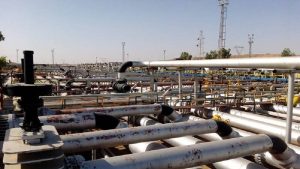
The Iranian regime is grappling with mounting pressure on its oil trade as new measures by China and the United States threaten to tighten the stranglehold on its primary source of income. Recent developments in China’s Shandong port and heightened U.S. sanctions have created significant obstacles for Tehran’s oil exports. China’s Shandong province, which plays a critical role in importing oil from Iran, Russia, and Venezuela, has announced a ban on U.S.-sanctioned oil tankers entering its port complex. Shandong, a hub for independent refiners, accounted for nearly 1.74 million barrels per day of oil imports from these three countries last year—representing about 17% of China’s total oil imports, according to Kpler, a global trade intelligence company.
Iran’s Regime Sentences 54 “Political and Security” Prisoners to Death

The Human Rights Activists in Iran organization has published a list of 54 “political and security” prisoners sentenced to death. According to the report, at least 24 individuals have been sentenced to execution by the Revolutionary and Criminal Courts of Tehran, while 20 others have received the same sentence in courts in the provinces of Khuzestan, Khorasan Razavi, West Azerbaijan, Sistan and Baluchestan, and Kurdistan.
This report, which was released on Monday, January 6, states that the execution sentences for these “political and security” prisoners have been upheld by Iran’s Supreme Court, and their cases have been transferred to the execution branch for enforcement.
Death Sentence Confirmed for Kurdish Political Prisoner Pakhshan Azizi

The Iranian Supreme Court has upheld the death sentence for Kurdish political prisoner Pakhshan Azizi, despite significant procedural flaws. Her lawyer, Amir Raisiyan, revealed that the court disregarded evidence pointing to her peaceful activities in refugee camps in northern Syria, which were mischaracterized as political crimes. Azizi, a social work graduate and activist from Mahabad, was arrested in Tehran in August 2023 and tortured during interrogation to force a confession. She was accused of “rebellion through membership in opposition groups” and sentenced in June 2024 by Judge Iman Afshari of Branch 26 of the Tehran Revolutionary Court. Azizi has a history of activism, including a 2009 arrest during student protests against political executions in Kurdistan. Released on bail in 2010, she was rearrested in 2023 on similar charges.
Khamenei’s Dilemma: Is Iraq Iran’s Last Stronghold in 2025?
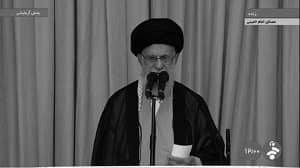
Following the fall of Bashar al-Assad, the ousted dictator of Syria, many analysts believe that the domino of change, which began in Syria, will move through Iraq and eventually reach Iran. This prospect has instilled a deep fear in the ranks of the clerical regime.
With the loss of its “strategic depth” in Syria, many believe this wave of systematic change will sweep through Iraq and then Iran. This fear is evident within the regime’s ranks and is acknowledged by many insiders and observers.
Mohammad Mehdi Mirbagheri, a member of the Assembly of Experts, recently stated:
“Some of our friends say that if we lose Syria, the regime is finished.”
Sheffield, UK – January 7, 2025: ‘Academics in Exile’ Exhibition Highlights Iran’s Human Rights Violations and Calls to End Executions
Sheffield, UK – January 7, 2025: Freedom-loving Iranians and academics supporting the People’s Mojahedin Organization of Iran (PMOI/MEK) organized a book and photo exhibition to protest the death sentences imposed on political prisoners associated with the PMOI. The event also aimed to support the “No to Executions” Tuesday Campaign, which advocates for Iranian political prisoners.